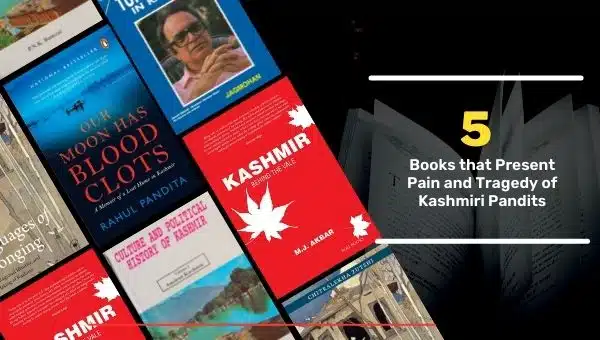- The way of conflict often became brutal which caused terror between the Hindus and lead to an exodus.
- Let’s look at 5 books that present pain and tragedy of Kashmiri pandits.
- This book studies the exploitation and cruelty caused related to the political leaders of Kashmir; the reactions of the …
- Although there might have happened a lot of historical changes and political changes regarding Kashmir valley, nothing h…
- Prithivi Bamzai jotted down the history and the time since when Kashmir become the highlight and a huge topic of religio…
- The Hindus were in minority and the Muslims were in majority and that was becoming remarkably restless with the slogans …
January 19 is observed as ‘Exodus Day’ by the Kashmiri Hindu communities. Why? What is Exodus Day? Exodus Day is primarily observed by a few Kashmiri Hindu Communities reminiscing those days when the Hindus and Kashmiri Pandits were contrasted by both Islamic rebels and the independence-seeking combative groups in the 1990s. The way of conflict often became brutal which caused terror between the Hindus and lead to an exodus. Let’s look at 5 books that present pain and tragedy of Kashmiri pandits.
5 Books that Present Pain and Tragedy of Kashmiri Pandits:
Language of Belonging – Chitralekha Zutshi
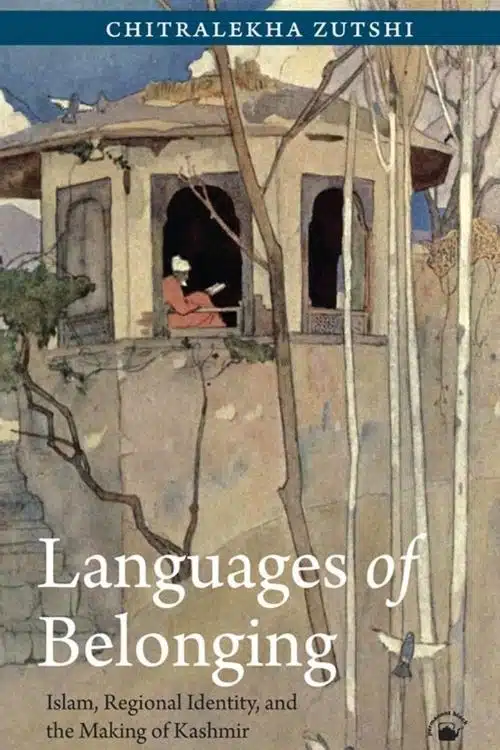
‘Language of Belonging’ deals with the hundred years of collision of tortuous colonial rule on the formation of class in Kashmir. This book studies the exploitation and cruelty caused related to the political leaders of Kashmir; the reactions of the Kashmiri society towards the social and economic reconstruction. Although there might have happened a lot of historical changes and political changes regarding Kashmir valley, nothing has altered towards the religion and regional aspect.
Culture and Political History of Kashmir – Prithivi Nath Kaul Bamzai
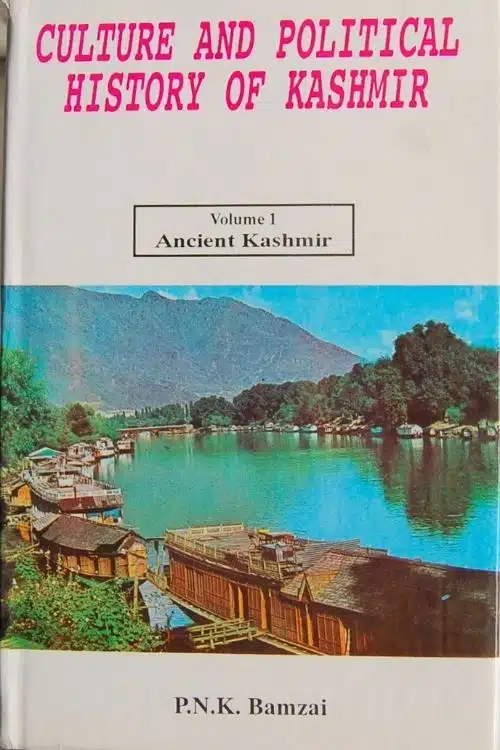
Prithivi Bamzai jotted down the history and the time since when Kashmir become the highlight and a huge topic of religious and political discussion. The contents of this book include the story of Kashmir, its people, Kashmir at a very early stage, and the developing socio-economic structure created by outer sources. These things give all the justified reasons why religion, nation, politics, and the people of the land itself caused Kashmir to be a land of discussion and a game of politics.
Kashmir, Behind the Vale – MJ Akbar
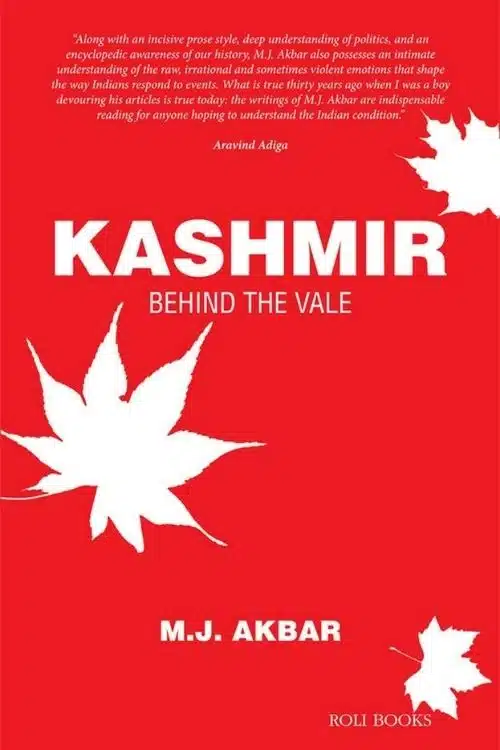
A book that talks about Kashmir and all that this land had to go through, from how religion became an excuse to grasp the land to how common people are concerned about their community more than their nation. The writer goes into the profound details of Kashmiriyat which has been living and growing for several generations. He covers the struggle of the state till 1947 and all the struggle amidst that independence.
Our Moon has Blood Clots – Rahul Pandita
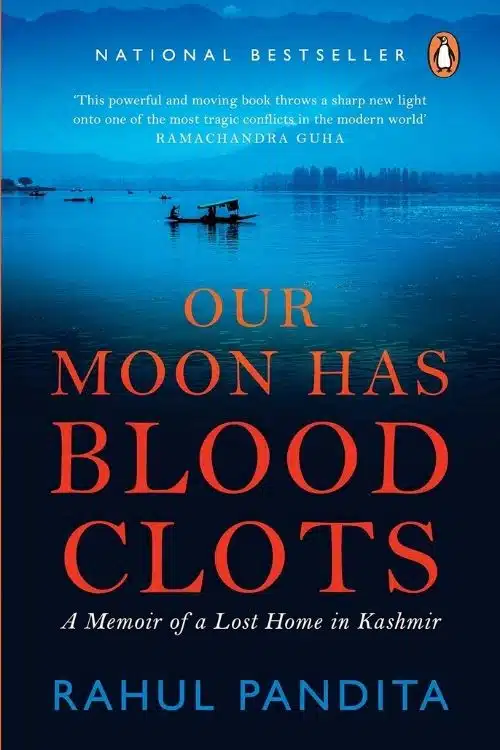
In 1990, when Rahul Pandita was 14-years-old he was compelled to leave his residence in Srinagar with his family. His close families were Kashmiri Pandits. The Hindus were in minority and the Muslims were in majority and that was becoming remarkably restless with the slogans of ‘Azadi’ from India. All the stories that we have read or heard have been presented through the prism of the cruelty of the state but this memoir discloses the shadowed aspect of the story. the aspect where hundreds of people were tormented and over 3,50,000 Kashmiri Pandits were obligated to leave their house and spend the rest of their existence in exile in their nation. Pandita has written this book from a subjective view of home and loss.
My Frozen Turbulence in Kashmir – Jagmohan
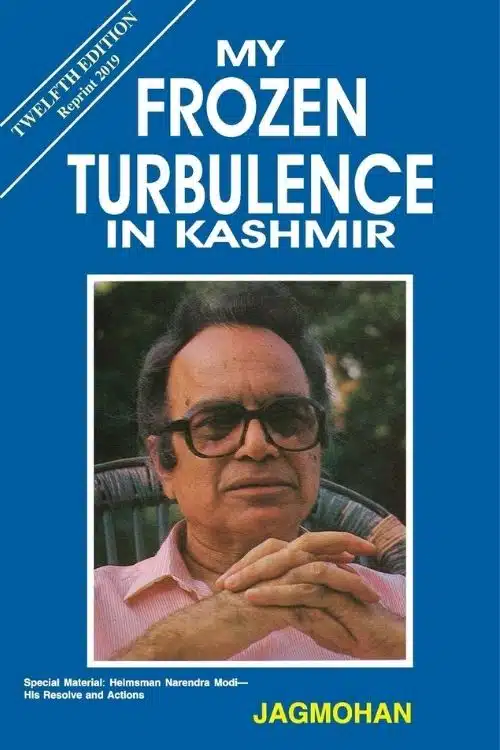
This book is a greatly captivating reserve analysing the perspective of the history of Kashmir and also the chaotic events of the writer’s two expressions of the governorship of the most vulnerable and tactical Indian State of J&K. The contemporary sixth edition of the book deals with The Kargil War, Pokhran Nuclear test, the incidents lead to the Vajpayee-Musharraf Summit and the mounting dimensions of global terrorism which resulted in the devastation of the World Trade Center and assault on the Parliament of India.
Also Read: 7 Creative Career Options You Can Choose
